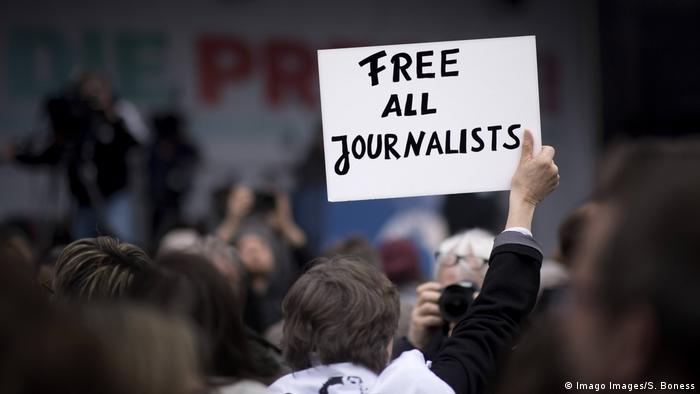« Turkey ranked 149th of 180 countries for freedom of the press, Reporters Without Borders (RSF) said on Tuesday, pointing to growing authoritarianism, the Recep Tayyip Erdoğan “hyper presidency” and a continued crackdown on dissenting voices » reports Ahval News.
“Authoritarianism is gaining ground in Turkey, challenging media pluralism,” RSF said in its 2022 World Press Freedom Index. “All possible means are used to undermine critics.”
Erdoğan’s grip over the media has gradually tightened since he won power in 2003. RSF estimates that some 90 percent of the national media is now under government control. That has prompted some Turks to turn to new independent media outlets based on the internet, TV channels Fox TV, Halk TV and Tele1 and international media such as the BBC, Deutsche Welle and Voice of America, which have established Turkish language websites.
RSF said Turkey’s ranking had improved from 153rd in 2021. But it urged caution against comparing the rankings with last year due to a change in methodology.
“As the 2023 election approaches, the Recep Tayyip Erdoğan “hyper-presidency” has stepped up its attacks on journalists in a bid to deflect attention from the country’s economic and democratic decline and to shore up its political base,” RSF said in the report.
“Tactics such as near systematic censorship on the internet, frivolous lawsuits against critical media outlets or the misuse of the judicial system have, until now, enabled Erdoğan to restore his popularity rating,” the organisation said.
RSF said critical journalists are stripped of press cards and judges who do the government’s bidding censure online articles tackling corruption and other sensitive topics, making it difficult to publish quality material.
The government and allied private sector companies endanger media pluralism by channelling advertising and subsidies to media outlets that provide favourable coverage, RSF said.
“The Press Advertising Council (BIK) uses the allocation of state advertising to put financial pressure on recalcitrant dailies, while the High Council for Broadcasting (RTÜK) helps to weaken critical TV channels economically by giving them heavy fines. Some dailies have had to reduce their number of pages because of the price of paper,” it said.
Other problems include the targeting of critical journalists with lawsuits accusing them of “insult” and social media hate campaigns against female journalists who highlight domestic violence or other forms of abuse, RSF said.
It said a spiral of violence had intensified against journalists critical of Erdoğan’s Justice and Development Party (AKP) and its far-right partner the Nationalist Movement Party (MHP) since the 2019 local elections.
Ahval News, May 3, 2022

